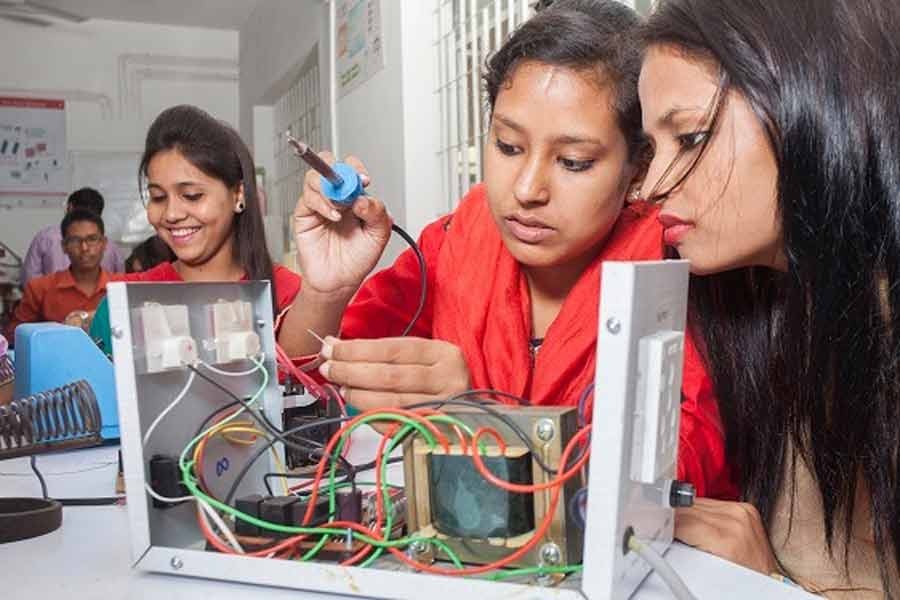
Published :
Updated :

The ICT sector had been a prime target of looters of the deposed government, with massive corruption in various projects implemented under the slogans of building a 'Digital Bangladesh' and 'Smart Bangladesh'. Newspaper reports reveal misappropriation of billions of taka from projects aimed at establishing IT training centres, IT parks, software parks, IT incubators, and digital labs. High-tech parks have been established in remote areas, often on agricultural land owned by influential individuals.
Consequently, most of the establishments remain deserted and resemble 'ghost towns'. Construction of impressive buildings had been the hallmark of implementing IT-based projects, as it provided a flexible avenue for embezzlement. While some of these buildings have been completed, others remain unfinished. Allegedly, proper use, regulations, or revenue models are conspicuous by their absence. In a country where one-third of the population comprises youth aged 15 to 35, many of whom are unemployed, the importance of technical and vocational training cannot be overstated.
Over the last decade, the number of technical institutes and student enrolment in these institutes has increased significantly. However, concerns remain about the academic standards in many vocational and technical institutions due to a severe shortage of qualified teachers, laboratories, and other essential facilities. The gravity of the situation is evident in a recent CPD survey, which found that approximately 73 per cent of technical graduates earn less than Tk 10,000 per month because of a lack of skills and a mismatch between academic knowledge and demand at workplaces. This underscores the critical need for teacher training, improved infrastructure, well-equipped laboratories, practical classes, and robust industry-academia collaboration. Technical education cannot rely solely on theoretical, classroom-based instruction. To this end, the Ministry of Education's 'TEVT Teachers for the Future (TTF)' project marks a significant step towards addressing these gaps in technical and vocational training. With a substantial budget of Tk 24.58 billion, the initiative seeks to modernise teacher training, upgrade infrastructure and ensure that the country can leverage its demographic dividend effectively. Enhancing teacher skills will be pivotal in making technical and vocational education both appealing and effective for students.
The project aims to address the deficiencies in technical and vocational education by imparting training to over 34,000 teachers, establishing new Technical Teachers Training Colleges (TTTCs), and modernising existing facilities. It also incorporates Fourth Industrial Revolution (4IR) technologies such as robotics, mechatronics, and cyber security, alongside green skills, to prepare educators and learners for future challenges. Additionally, the allocation of 100 research grants for industry-focused projects is quite pragmatic to bridge the gap between academia and industrial needs. By addressing the shortage of adequately trained TVET teachers and filling vacancies in technical education institutions, the project aspires to create a robust ecosystem for skill development.
To fully realise the project's potential, policymakers must adopt a holistic approach. While infrastructural upgrading and teacher training are crucial, focus should equally be directed to creating industry-driven curricula, fostering public-private partnerships and ensuring equitable access to technical education. Special attention must be given to integrating underrepresented groups, including women, into the technical and vocational education system. Additionally, the interim government must devise a smart plan for effective utilisation of the IT centres and labs established by the previous government through their transforming into functional skill development hubs. Overall, comprehensive measures are needed to arm the country's skilled labour pool for realising the nation's growth potential.


 For all latest news, follow The Financial Express Google News channel.
For all latest news, follow The Financial Express Google News channel.